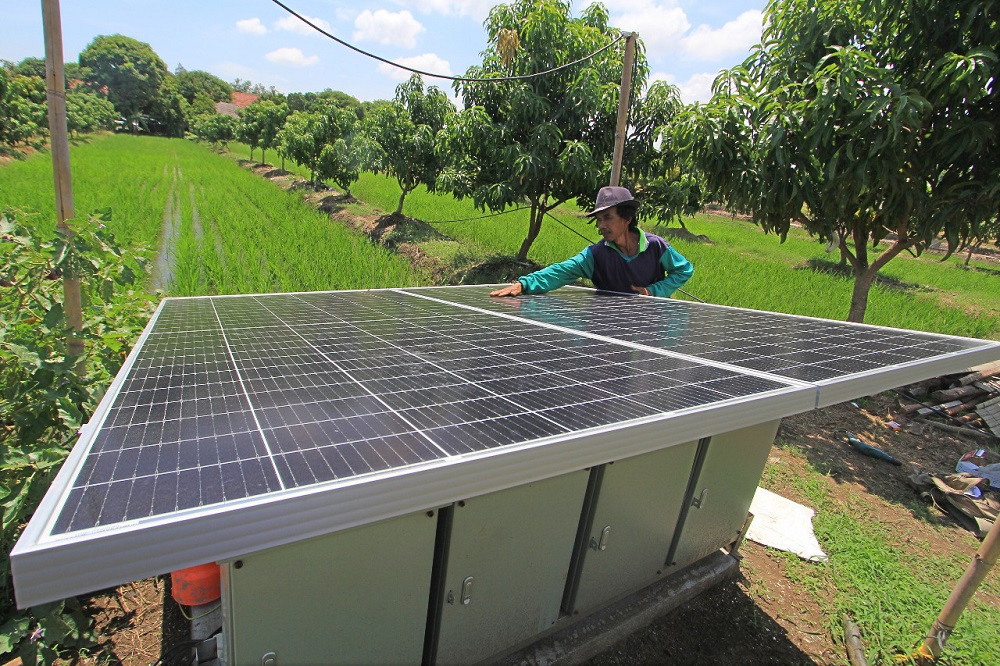New rules expected to boost solar panel manufacturing
A recently issued regulation aims to spur demand for rooftop photovoltaic (PV) systems and thereby nurture a domestic solar panel manufacturing industry.
Change Size

A
recently issued regulation aims to help Indonesia reach its renewable energy targets and nurture a domestic solar panel manufacturing industry by incentivizing the adoption of rooftop photovoltaic (PV) systems.
Indonesian Solar Energy Association (AESI) chairman Fabby Tumiwa said the new rules on rooftop solar panels would stoke demand for rooftop PV panels and thereby spur the growth of the PV manufacturing industry in Indonesia.
“A minimum market of 500 megawatts per year is needed for the solar cell and module industry to be sustainable,” he told The Jakarta Post on Tuesday.
Energy and Mineral Resources Ministry Regulation No. 26/2021 on rooftop solar panels – issued on Aug. 20 and published on government website peraturan.go.id – is aimed at achieving the targeted 3.6 gigawatts of installed rooftop solar power capacity by 2024, a target included in the national strategic projects (PSN).
The energy ministry’s renewables director general, Dadan Kusdiana, said the 3.6 GW target was aimed at “opening up” the domestic market, as it would increase investment in the upstream and laminating industry.
“As of now, there are approximately 22 to 26 solar panel manufacturers with a total capacity of 500 MW,” he said in a virtual press conference set up by the energy ministry on Aug. 27.
Read also: Indonesia needs renewable energy law to pave way for cleaner energy
The new regulation requires state-owned electricity company PLN to deduct 100 percent of the electricity produced by a solar panel from a user’s bills, as opposed to 65 percent under the previous regulation. While PLN will not pay users for excess power they feed into the grid, the increased potential savings on their personal electricity bills can help PV system owners recoup their investment more quickly.
The regulation addresses several aspects to incentivize rooftop solar panel use by increasing the economic value of personal PV systems.
However, supportive financing options, including easy-to-obtain credit, low interest rates and fixed installments, according to Fabby, remain crucial to accommodating residential solar panel users.
“The government also needs to consider providing incentives for the upstream solar cell raw materials industry,” he suggested.
Read also: Rooftop solar panels, are they actually worth it?
Indonesian Renewable Energy Society (METI) executive director Paul Butarbutar said increasing rooftop solar panel utilization would attract investment in rooftop solar panel production.
“We have to see this as an opportunity, not a threat,” he told The Jakarta Post by text message on Sept. 9.
Meanwhile, Institute for Energy Economics and Financial Analysis (IEEFA) analyst Elrika Hamdi said it was crucial for the government to consider the fact that it would take time and steady demand to establish industrial supply chains.
These were important aspects to consider, she said, especially because Indonesia was still importing raw solar panel materials, such as solar cells and silica, and had yet to establish a local inverter industry.
“On the other hand, demand could come from either the domestic or the global market,” she told the Post, also on Sept. 9, adding that improvements were needed to make Indonesian PV solar panels competitive on the global market.









